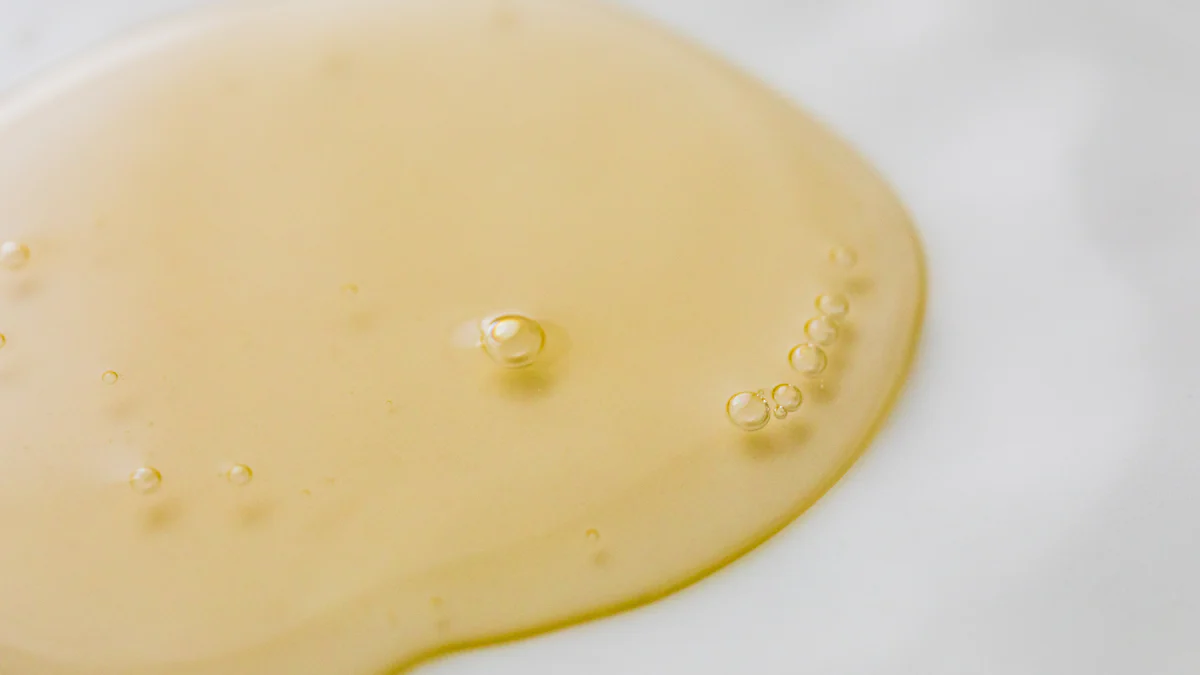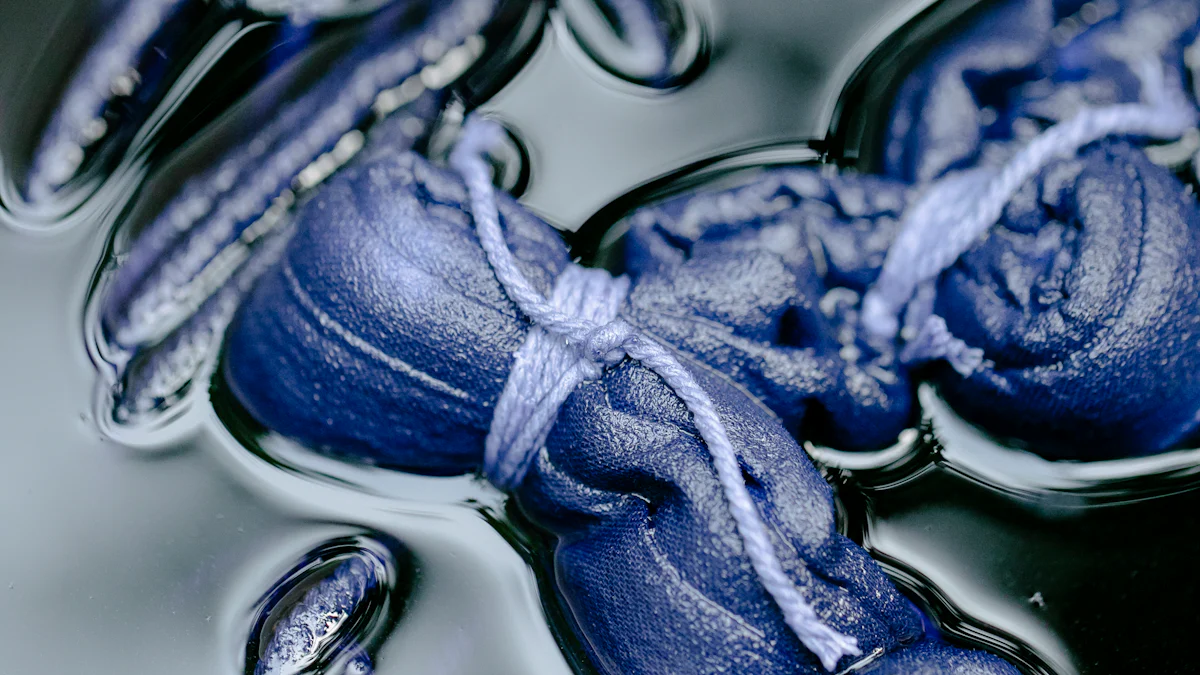
Silicone oil types play a vital role in improving textile quality. You can use them to enhance fabric softness, increase durability, and protect against environmental damage. These oils create a smooth, luxurious feel while boosting performance. By understanding their properties, you can unlock new possibilities for superior textile production.
Key Takeaways
- Silicone oils make fabrics softer and stronger. They feel nicer and last longer.
- There are different silicone oils, like amino and modified ones. Each type helps fabrics in special ways.
- Picking the right silicone oil can add water resistance and heat safety. This helps fabrics work better for daily use.
Silicone Oil Types and Their Unique Properties

Amino Silicone Oils
Amino silicone oils are widely used in the textile industry for their ability to improve fabric softness and elasticity. These oils contain amino groups, which bond easily with fibers. This creates a smooth, silky texture that enhances the feel of the fabric. You can use amino silicone oils to treat a variety of textiles, including cotton, polyester, and blends. They also help reduce wrinkles and improve the drape of fabrics, making them ideal for high-quality garments.
Hydroxy Silicone Oils
Hydroxy silicone oils are known for their excellent compatibility with other textile treatments. These oils contain hydroxyl groups, which allow them to blend seamlessly with emulsifiers and other additives. When applied to fabrics, they enhance softness and provide a glossy finish. You can rely on hydroxy silicone oils to improve the appearance and feel of textiles without altering their natural properties. They are especially effective in applications where a smooth, polished surface is desired.
Modified Silicone Oils
Modified silicone oils are tailored to meet specific textile needs. These oils are chemically altered to provide unique benefits, such as improved water repellency or enhanced heat resistance. For example, some modified silicone oils are designed to protect fabrics from high temperatures during ironing or industrial processing. You can choose from a range of formulations to achieve the exact performance characteristics your textiles require.
Emulsion-Based Silicone Oils
Emulsion-based silicone oils are pre-dispersed in water, making them easy to apply during textile finishing processes. These oils are ideal for achieving uniform coverage on fabrics. They enhance softness, improve elasticity, and add a luxurious feel to textiles. You can use emulsion-based silicone oils for a wide range of applications, from casual wear to specialty fabrics like sportswear. Their water-based nature also makes them environmentally friendly and easy to handle.
How Silicone Oil Types Enhance Textile Quality

Improved Softness and Smoothness
Silicone oil types are essential for achieving fabrics with a soft and smooth texture. When applied, these oils coat the fibers, reducing friction between them. This creates a silky feel that enhances the overall comfort of the material. You can use amino silicone oils to make garments feel luxurious and pleasant against the skin. Hydroxy silicone oils also add a polished finish, making fabrics look and feel premium. Whether you’re working with cotton, polyester, or blends, these oils ensure your textiles stand out with superior softness.
Enhanced Durability and Longevity
Fabrics treated with silicone oil types last longer and maintain their quality over time. These oils form a protective layer around fibers, shielding them from wear and tear. Modified silicone oils, for instance, can improve resistance to mechanical stress during washing or ironing. This helps garments retain their shape and texture even after repeated use. By incorporating silicone oils into your production process, you can create textiles that offer both durability and long-term value.
Water and Stain Resistance
Silicone oil types provide excellent water and stain resistance, making fabrics more practical for everyday use. Modified silicone oils with water-repellent properties prevent liquids from penetrating the fibers. This keeps fabrics clean and dry, even in challenging conditions. Emulsion-based silicone oils are particularly effective for uniform application, ensuring consistent protection across the entire surface. You can rely on these oils to enhance the functionality of textiles, especially for outdoor or activewear.
Heat and Chemical Resistance
Silicone oil types also improve a fabric’s ability to withstand heat and chemicals. Modified silicone oils designed for high-temperature applications protect textiles during industrial processes like dyeing or ironing. These oils prevent fibers from degrading under extreme conditions, ensuring the material remains intact. Additionally, their chemical resistance makes fabrics less prone to damage from harsh cleaning agents. This makes silicone oils an indispensable tool for creating textiles that perform well in demanding environments.
Applications of Silicone Oil Types in the Textile Industry

Fabric Finishing
You can use silicone oil types to elevate fabric finishing processes. These oils enhance the softness, elasticity, and overall feel of textiles. By applying them during finishing, you create fabrics that feel luxurious and smooth to the touch. Amino silicone oils are particularly effective for improving drape and reducing wrinkles. This makes them ideal for garments that require a polished, high-quality appearance. Whether you’re working with casual wear or formal fabrics, silicone oils ensure your textiles meet premium standards.
Yarn Lubrication
Silicone oil types play a crucial role in yarn lubrication. They reduce friction between fibers, making the yarn easier to process during weaving or knitting. This minimizes breakage and ensures smoother production. Hydroxy silicone oils are especially useful here, as they blend well with other additives to provide consistent lubrication. By incorporating these oils, you improve the efficiency of your manufacturing process while maintaining the strength and quality of the yarn.
Dyeing and Printing Processes
During dyeing and printing, silicone oil types help achieve uniform color application. They enhance the fabric’s ability to absorb dyes, resulting in vibrant and long-lasting hues. Modified silicone oils, with their heat-resistant properties, protect textiles during high-temperature dyeing processes. This ensures the fibers remain intact while achieving the desired color intensity. You can rely on these oils to produce textiles with sharp, vivid designs that stand out.
Specialty Textiles (e.g., sportswear, outdoor gear)
For specialty textiles like sportswear and outdoor gear, silicone oil types offer unmatched performance benefits. They improve water repellency, stain resistance, and durability. Emulsion-based silicone oils are particularly effective for these applications, as they provide uniform coverage and enhance the fabric’s elasticity. This makes the textiles more functional and comfortable for active use. Whether you’re designing weather-resistant jackets or moisture-wicking athletic wear, silicone oils help you create products that excel in demanding conditions.
Choosing the Right Silicone Oil Type for Your Needs

Factors to Consider
Selecting the right silicone oil for your textiles depends on several factors. Start by evaluating the type of fabric you’re working with. Different materials, like cotton, polyester, or blends, respond differently to treatments. For instance, amino silicone oils work well for enhancing softness in natural fibers, while modified silicone oils may suit synthetic fabrics requiring water repellency.
Next, identify the specific properties you want to achieve. Are you aiming for a silky texture, improved durability, or heat resistance? Each silicone oil type offers unique benefits tailored to these needs. Consider the application process as well. Emulsion-based silicone oils simplify application and ensure even coverage, making them ideal for large-scale production.
Finally, think about environmental factors. If sustainability is a priority, look for formulations that align with eco-friendly practices. By carefully assessing these elements, you can choose a silicone oil that delivers the best results for your textiles.
Benefits of Custom Formulations
Custom formulations offer unmatched flexibility for meeting your textile goals. These formulations allow you to tailor silicone oils to specific requirements, ensuring optimal performance. For example, you can create a blend that combines softness with water repellency, perfect for outdoor fabrics.
Custom solutions also help you address unique challenges in your production process. If your textiles require enhanced heat resistance during industrial processing, a modified silicone oil can be designed to meet this need. Additionally, custom formulations often improve efficiency by reducing the need for multiple treatments.
By investing in tailored solutions, you gain a competitive edge. Your textiles will stand out with superior quality and functionality, meeting the demands of both consumers and industry standards.
Silicone oil types revolutionize textile production by improving softness, durability, and resistance. Choosing the right type ensures your fabrics perform better and stand out in competitive markets. As you explore innovative solutions, these oils will remain essential for enhancing textile quality and functionality. Their versatility makes them a cornerstone of modern textile advancements.
FAQ
What are the main benefits of using silicone oils in textiles?
Silicone oils improve softness, durability, and resistance to water, stains, and heat. They also enhance the fabric’s appearance and feel, making textiles more functional and appealing.
Can silicone oils be used on all types of fabrics?
Yes, you can apply silicone oils to most fabrics, including cotton, polyester, and blends. Choose the right type based on the fabric and desired properties.
Are silicone oils environmentally friendly?
Some silicone oils, like emulsion-based types, are eco-friendly due to their water-based formulation. Always check for sustainable options to align with environmental goals.
Post time: Jan-22-2025

